Managing Editor Grant Chu Covell works in the Boston area. He once worked for a global technology company that made hardware which Xenakis and Babbitt used to good effect. He was the publisher of the brilliant but forgotten The Periodic Journal of Bibliography (1990-95), and his music reviews have appeared in EAR Magazine and InMusic. His instrumental and electroacoustic music has been performed in the U.S. and abroad, and he has shared many CDs of his music with family and friends (one piece was recorded in a refrigerator). A short article about a composition he wrote for piano and tape can be found in the Csound Magazine. Two electroacoustic works have appeared in commercial compilations: Presence III and The Door Project. A recent CD can be found here, and another is in preparation. A long departed family dog’s name was taken from a character in Wagner’s Ring.
Grant Chu Covell

Mostly Symphonies 4.
Sturm und Drang is back. You read it here first. We’re teetering on a new age’s cusp guaranteed to perturb old-timers who survived the historically informed practice movement.

Mostly Symphonies 4.
Sturm und Drang is back. You read it here first. We’re teetering on a new age’s cusp guaranteed to perturb old-timers who survived the historically informed practice movement.
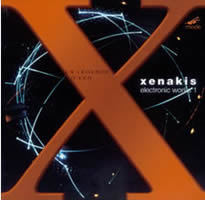
New and Essential Xenakis, Part 2
In the extra interview on mode’s La Légende d’Eer DVD, Xenakis states that instrumental and electroacoustic composition pose different problems, and woe betide the composer who attempts to combine them.

New and Essential Xenakis, Part 2
In the extra interview on mode’s La Légende d’Eer DVD, Xenakis states that instrumental and electroacoustic composition pose different problems, and woe betide the composer who attempts to combine them.

Never Enough String Quartets!
Is it possible to tire of string quartets? Not where I sit!

Never Enough String Quartets!
Is it possible to tire of string quartets? Not where I sit!
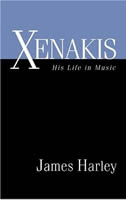
New and Essential Xenakis, Part 1
Not everyone has to like Xenakis, though I wish everyone would.

New and Essential Xenakis, Part 1
Not everyone has to like Xenakis, though I wish everyone would.

Sticking with col legno
Col legno ranks among those few labels for which I would blindly collect one of everything…

Sticking with col legno
Col legno ranks among those few labels for which I would blindly collect one of everything…

Non-Trivial Simplicity
Neophyte composers love their materials to death. Been there, done that: repeating the same damned progressions simply because the suspension pleased me, unaware that neighbors were arranging for my untimely demise.

Non-Trivial Simplicity
Neophyte composers love their materials to death. Been there, done that: repeating the same damned progressions simply because the suspension pleased me, unaware that neighbors were arranging for my untimely demise.
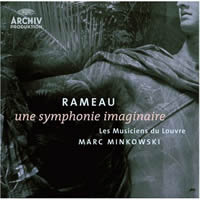
Mostly Symphonies 3.
“…[W]e still sorely missed the symphonie that Rameau never wrote. And so we created it ourselves.”

Mostly Symphonies 3.
“…[W]e still sorely missed the symphonie that Rameau never wrote. And so we created it ourselves.”
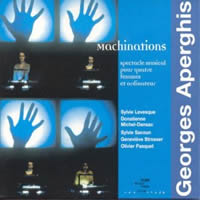
Further Aperghis Sightings
Ever since encountering Récitations in a Mexico City Tower Records discount bin, I’ve eagerly sought other Aperghis recordings.

Further Aperghis Sightings
Ever since encountering Récitations in a Mexico City Tower Records discount bin, I’ve eagerly sought other Aperghis recordings.
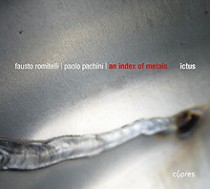
Ictus Rocks: New Romitelli and Aperghis on Cyprès
Released last year but not generally available in the US until now, two Cyprès products demonstrate Ictus’ strong presence at New Music’s bleeding edge.

Ictus Rocks: New Romitelli and Aperghis on Cyprès
Released last year but not generally available in the US until now, two Cyprès products demonstrate Ictus’ strong presence at New Music’s bleeding edge.

Italian Vacation 4. (con Claudio)
Monteverdi recordings exist for every taste.

1951 and Cage’s Music of Changes
Twentieth-century music began in 1951, the year Schoenberg died and Cage began to use chance.

1951 and Cage’s Music of Changes
Twentieth-century music began in 1951, the year Schoenberg died and Cage began to use chance.

Anomalies Pleasant and Surprising
Berio may have been the postwar generation’s most sentimental if not most wistful composer. Unlike many of his peers, he acknowledged music’s history and would freely adapt, orchestrate and reinterpret the music of others, as well as his own.

Anomalies Pleasant and Surprising
Berio may have been the postwar generation’s most sentimental if not most wistful composer. Unlike many of his peers, he acknowledged music’s history and would freely adapt, orchestrate and reinterpret the music of others, as well as his own.